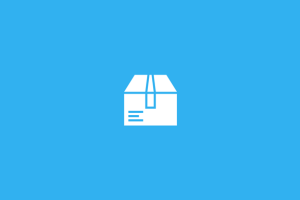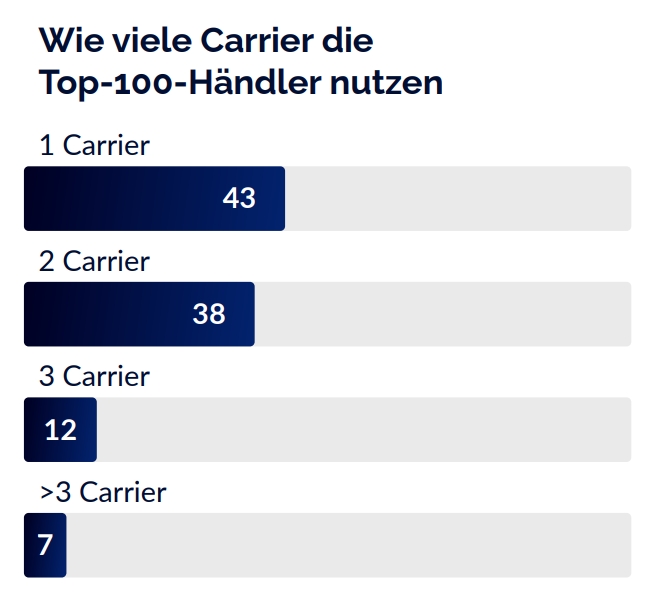Ecommerce shipping in Germany 2021

Online shops in Germany have done a solid job in terms of shipping online orders to customers. Last year, was a difficult year, because of the sudden peak in ecommerce, but most things went well, a new study shows.
Every year for the last three years, ParcelLab places test orders at 100 of the largest online stores in Germany. Then they examine the entire shipping process very carefully. What are the shipping costs, how long does the delivery take, which parcel carrier has been used, et cetera.
Multi-carrier management is getting more popular
Given the massive flood of parcels last year (DHL alone reported a new record of 1.8 billion delivered parcels), online retailers tried more than ever to distribute the load between different logistics companies. The share of ecommerce players who deliver goods through more than one carrier has risen from 51 to 57 percent. This also means that still 43 percent of large online retailers in Germany rely on only one carrier, even when they are at maximum capacity. ParcelLab calls this number “surprisingly high”.
57% of online retailers use more than one carrier.
21% also used ‘alternative’ logistics companies
Alternative delivery companies, in particular, gained popularity last year. The proportion of online retailers who, in addition to well-known companies such as DHL, Hermes, UPS, DPD, or GLS, also rely on other carriers such as Trans-o-flex, Dachser, Rhenus, or TNS, has increased by 11 percentage points to almost 21 percent last year.
Investment in logistics leads to fewer cases of free delivery
With the completely unexpected peak in ecommerce last year, online retailers had to invest heavily in their logistics. Some ecommerce companies tried to amortize these costs through shipping fees. As a result, there were only 14 retailers who generally ship items without any costs. One year before, there were 22 of them.

More retailers share a specific delivery date
Another interesting result, according to ParcelLab, is that the number of retailers who named a specific delivery date during the checkout process, while the corona crisis took place, rose from 84 to 89. “And in most cases, the retailers kept these promises.” During the test period, which took place from mid-October to mid-November, about three-quarters of shipments (73 percent) were on time or even arrived earlier than announced. “However, within a year the number of delayed shipments rose from 16 to 27 percent.”
The number of delayed shipments grew to 27%.
The most discrepancy between customers’ wishes and the actual reality happens in the delivery communication. While 97 of the 100 retailers send a link for parcel tracking with the delivery confirmation, only 27 inform their customers that a parcel has been delivered. But ParcelLab’s study shows that half of the online buyers would like to receive this kind of message.
Ecommerce logistics is becoming more sustainable
The study also shows that ecommerce companies are focusing more on environmental sustainability. Currently, respectively 47 and 46 percent of retailers adapt their package size to the product size and don’t use plastic as filling material. Last year, this was 29 percent.
“Given the challenges that online retailers completely unexpectedly had to face last year, the online shops did a solid job”, Anton Eder, co-founder of ParcelLab, summarizes the study results. “Many first-time customers are pleasantly surprised by their online shopping experience. This is a good starting position for 2021 to really inspire customers in the next step”, he concludes.
Earlier studies on the shipping process of the top 100 online retailers in Germany:

Comments